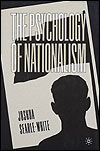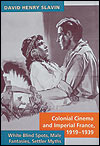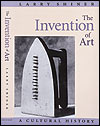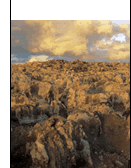|
Bookshelf
Page 2
| |
 |
Politics
and Political Change
Edited By Robert I. Rotberg ’55
The MIT Press, 2001
Politics
and political change are the staples of history, says Rotberg,
whose collection demonstrates how theory and practice from
political science, sociology, and economics can deepen the
study of past politics. His wide-ranging topics include political
confessionalism, urban voter fraud, and methods of electing
popes. Rotberg is president of the World Peace Foundation
and director of Harvard University’s Program on Intrastate
Conflict.
|
 |
| |
|
When
I Open My Window:
Reflections for the Living of These Days
By Chandler “Tuck” Gilbert ’47
Grenfell Reading Center, 2001
Written
to “provoke discussion, intrigue the mind, and nurture
the spirit,” this book addresses some of the challenges
of living in our times. Drawing on his experiences as a pastor
and a human being, Gilbert frames these personal reflections
with thought and a graceful style. An ordained minister, Gilbert
was a parish minister for 38 years.
|
 |
 |
|
The
Psychology of Nationalism
By Joshua Searle-White ’87
Palgrave, 2001
Nationalism
and other forms of group identity underlie some of today’s
most tenacious and vicious conflicts, says Searle-White, who
answers many questions Americans have about these events:
Why do people cling to nationalism when it can ultimately
be destructive to them, to their families, and to their nations?
Forms of nationalism in Quebec, Armenia and Azerbaijan, and
Sri Lanka are examined. Searle-White teaches psychology at
Allegheny College.
|
 |
| |
|
Phantom
Soldier: The Enemy’s
Answer to U.S. Firepower
By H. John Poole ’64
Posterity Press, 2001
Well-researched
and authoritative, this book describes the differences between
Eastern and Western military traditions by depicting the actions
of the infantryman faced by Americans in war, including those
in Japan, Somali, Arabia, Vietnam, and Germany. Poole explains
the very different historical perspectives, living conditions,
and terrain that have produced different methods of warfare
and offers the lessons of recent military history at a most
pressing and appropriate time. Poole has authored and edited
several other works, including The Last Hundred Yards.
|
 |
| |
|
A
Memoir of No One in Particular
By Daniel Harris ’80
Basic Books, 2002
This
unique and eccentric book parodies conventional autobiographies,
asking, “Why should we care about anyone’s life?”
Harris’ story, nevertheless, is by turns sad and serious,
sensitive, self-deprecating, and sympathetic. He shares his
own personal history as a gay, white male by probing the banalities
of daily living and reveling in the minutiae and mundane rituals
of life. Harris is the author of Cute, Quaint, Hungry,
and Romantic and The Rise and Fall of Gay Culture.
|
 |
| |
|
Strategies
for Playbuilding: Helping Groups Translate Issues into Theatre
By Will Weigler ’82
Heinemann, 2001
Transforming
serious social, personal, and political issues into plays
is the focus of this work, which serves as a step-by-step
manual for those who want to help young people evaluate their
knowledge, learn about the important issues in their lives,
and turn their ideas into scripts, songs, or choreography.
With its outlines, bullets, and helpful inlays, this is an
easy guide for use right on the stage. Weigler is the cofounder
of the Young Actors’ Forum.
|
 |
| |
|
Virtually
Jewish: Reinventing
Jewish Culture in Europe
By Ruth Ellen Gruber ’71
The University of California Press, 2002
Gruber
explores the widespread European infatuation with Jewish culture.
Based on her extensive travels and direct observations, she
considers how and why Jewish performances, publications, and
museums have become so popular. The embrace of Jewish culture
by non-Jews in Europe, she suggests, may signify atonement
for the Holocaust, adherence to a multicultural ideal, or
a way to redefine “personal identity and national histories.”
Gruber is the author of Upon the Doorposts of thy House
and Jewish Heritage Travel. She lives in Italy and
Hungary.
|
 |
 |
|
Colonial
Cinema and Imperial France, 1919-1939: White Blind Spots,
Male Fantasies, Settler Myths
By David Henry Slavin ’67
The Johns Hopkins University Press, 2001
This
ambitious work explores the relationship between imperialism
and French film, describing how artists and propagandists
exploited the new medium of cinema in their romanticized depictions
of France’s imperial mission in Algeria and Morocco.
As examples, Slavin refers to such key colonial-era films
as L’Atlantide and Pépé le Moko.
He is a visiting assistant professor of history at Knox College.
|
 |
 |
|
Timebomb:
The Global Epidemic of
Multi-Drug-Resistant Tuberculosis
Lee B. Reichman ’60
McGraw-Hill, 2002
The
New York Times called this book a “chilling account”
of the rise of tuberculosis, which has reached epidemic proportions.
Over one-third of the world’s population has latent TB,
says Reichman, and the disease is undergoing a metamorphosis:
it’s adapting to our misused medications and becoming
unbeatable and multi-drug resistant. His lively book relays
statistics and TB “hot spots” while proposing funding
and standardized treatments. Reichman is the executive director
of the New Jersey Medical School National Tuberculosis Center.
|
 |
| |
|
Contrasts
in American and Jewish Law
Edited by Daniel Pollack ’75,
with Karen R. Cavanaugh ’86
Yeshiva University Press, 2001
Through
a series of essays, many previously published in leading law
journals, Pollack illustrates how American law is rights-based,
while Jewish Law (Halacha) is duty-based. The ways in which
each deals with society’s needs will captivate all, from
lawyers and students to readers of Jewish studies. Pollack
is associate professor at the Wurzweiler School of Social
Work at Yeshiva University and president of the Center for
Social Work Management. Cavanaugh is an attorney in Washington,
D.C.
|
 |
 |
|
The
Invention of Art: A Cultural History
By Larry Shiner ’56
The University of Chicago Press, 2001
Shiner
spent more than a decade honing a “brief history of the
idea of art.” This carefully prepared and concise book
traces the 18th-century division between “so-called polite
and vulgar arts” to the beginning of art as we experience
it today. His examples include Shakespearean plays, Greek
drama, Cellini’s sculptures, and Michelangelo’s
paintings. A must for art aficionados, his text is scholarly,
but appealing to readers with even a dabbler’s interest
in art theory. Shiner is a professor of philosophy at the
University of Illinois at Springfield.
|
Page
1 | 2 |
3 of Bookshelf
|




